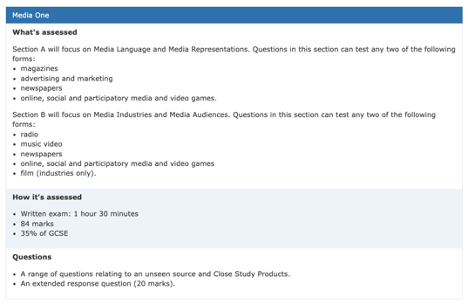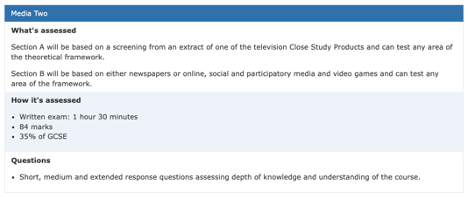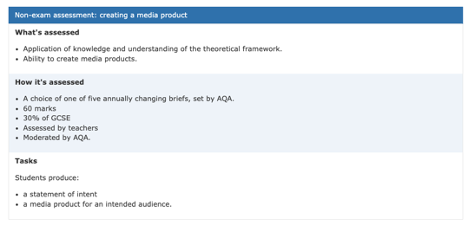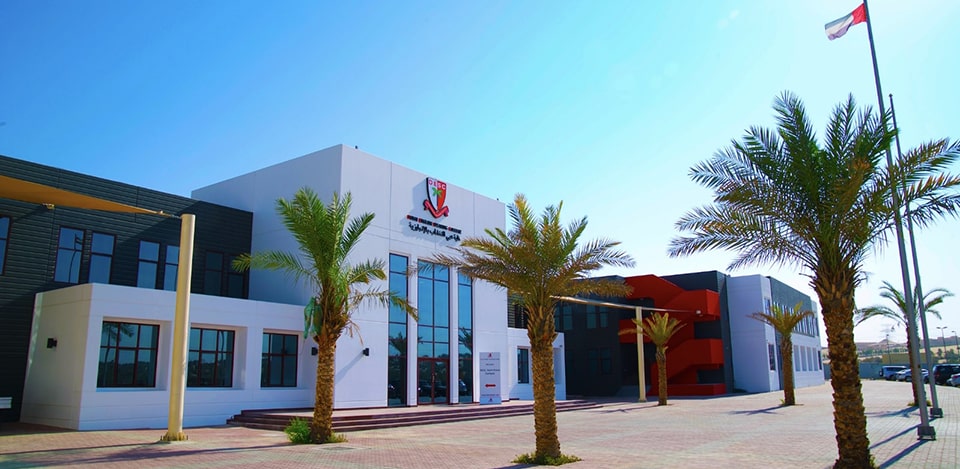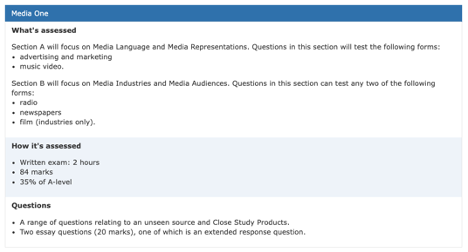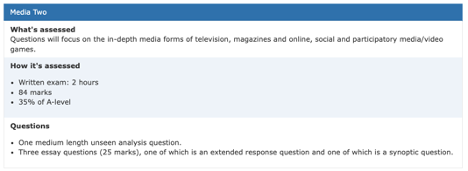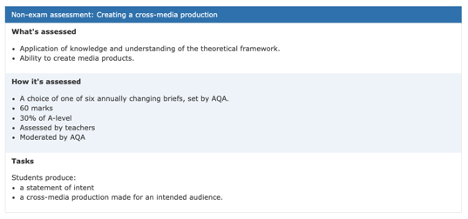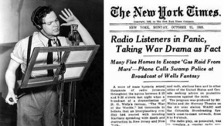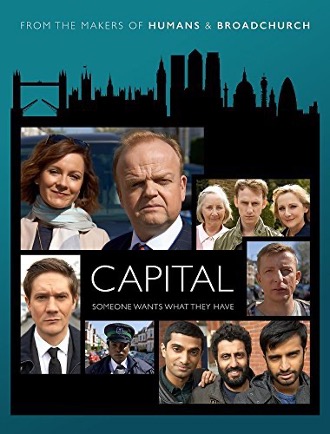How important is social networking to you? How does the industry create products guaranteed to make profit? Has a film ever changed the way you think about something? Have you ever questioned why the models in magazines look as they do? These are all crucial questions for our digitalised society and Media Studies offers the opportunity to explore the influence media has on our lives.
Media Studies equips students with alternative perspectives on life, culture, society and global identities. In addition to this, we provide opportunities for students to experience ‘real life’ media, working to real briefs for real audiences.
We actively encourage the incorporation of interests from outside of school as a vehicle to stretch and improve our students, providing experiential opportunities that can then be used within further or higher education and the world of work. There has never been a more important time to be Media savvy; this is the predestined future of our young, digital natives.
GCSE & A-Level Overview
Media Studies equips students with alternative perspectives on life, culture, society and global identities. In addition to this, we provide opportunities for students to experience ‘real life’ media, working to real briefs for real audiences.
We actively encourage the incorporation of interests from outside of school as a vehicle to stretch and improve our students, providing experiential opportunities that can then be used within further or higher education and the world of work. There has never been a more important time to be Media savvy; this is the predestined future of our young, digital natives.
Through studying Media Studies students will view, evaluate and analyse a variety of media products, and develop practical skills spanning a range of media forms. You’ll find contemporary, diverse topics and varied and engaging content, enabling students to develop research, problem-solving skills as well as their creativity. They’ll also refine their debating skills through the discussion of contemporary issues from a range of perspectives.
Students will study a selection of CSPs (Close Study Products) which exemplify the learning of contemporary and historical issues within the media. These are selected and give students the opportunity to discuss:
- The possess cultural, social and historical significance in terms of critical acclaim and/or audience popularity.
- Reflect and illuminate the theoretical framework for the study of media.
- Demonstrate contrasts in terms of perceived quality, form and structure.
- Provide rich and challenging opportunities for interpretation and analysis, enabling students to develop a detailed understanding of how the media communicate meanings.
- Are from different historical periods.
- Are intended for different audiences.
- Demonstrate emerging, future developments of the media.
- Are not necessarily the type of products which students would normally engage.
